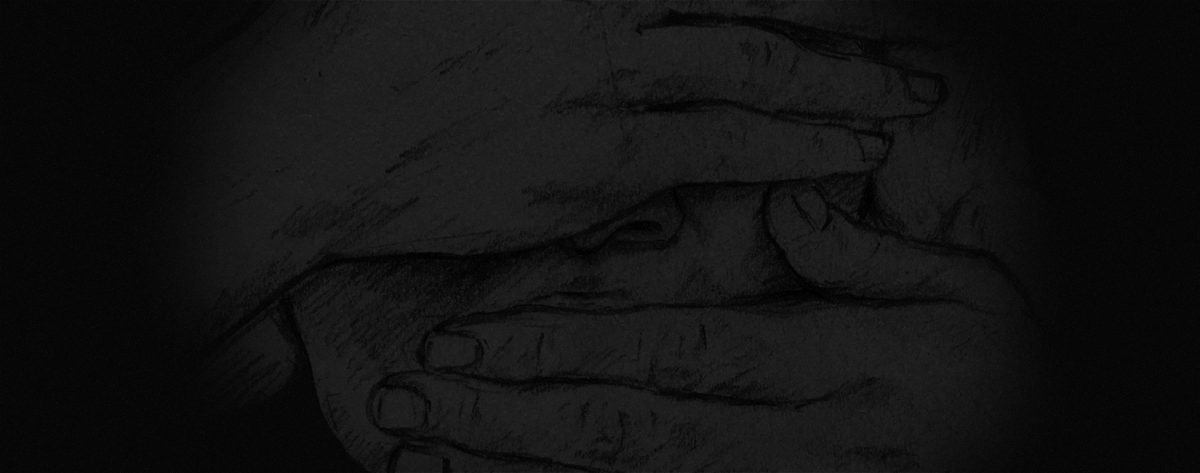Like all things, civilisations die. Many, as they near their end, experience brief epochs of revival where it seems they have managed to escape their fate. In times of antiquity, when civilisations spanned millennia, such periods of respite might have lasted for hundreds of years. Still, they represented nothing more than the postponement of the inevitable.
In this age we face our own catastrophe, one which threatens not only a single branch of humanity, but the whole world. There will be no subsequent culture to pick through the best of our accomplishments and forge them into something anew. Yet unlike the peoples of these bygone ages we have a measure of foresight, which might, if we are fortunate, allow us to avoid our own annihilation.
There is a consensus among scientists regarding the dangers of climate change, and an idea of what must be done to, if not to completely avert, then at least side step disaster. There are people who refute these claims, people who refuse to believe, but for most of us the changes in the world around us are apparent and we do believe. Isn’t it strange then that we allow things to continue as if there is no urgency, that people carry on as if this is a chore that can be put off until tomorrow? We do our recycling, maybe we walk or cycle a bit more, or use public transport, but still we keep guzzling the vast amount of products produced for our consumption, without question. We have become a marketeers wet dream, beholden to brands that peddle dreams of the satisfaction or prestige we will gain by owning or being associated with them. A satisfaction that the lives we have been forced into often negates. By we I principally mean the people of the West, because our insatiable appetite for everything has obvious consequences for the rest of the world, often those charged with producing the very goods we consume. It is simple maths, when one section of the world lives in excess, another will experience want.
The ceaseless cycle of production and consumption required to maintain the world’s economy, is not sustainable. More importantly it is not conducive with reversing or even halting the damage we have done to our world. It will not solve the problems of inequity and hunger, as the gap between rich and poor only continues to grow, while the gap between the world’s richest and the rest of the world has become astronomical. The trickle down effect is no more than a leak from the reservoir of capital, the wealth of these magnates so unworldly that it has driven their ambitions into space. They cannot save the earth because stalling the machinery which is destroying it would spell their own demise. It is their greed we are supposed to emulate, as we are lead to believe that selfish gain is life’s greatest prize and there is no disconnect between this and a caring society, that it is only through ruthlessness that mankind can progress. Even if it’s not what we are told, then at least it’s implied, that the have-not’s are where they are because they are lazy, stupid, worth less, or that it is due only to the inefficiencies or underdevelopment of their own societies, rather than the wider world within which they reside. There is no historical context, no sense of how we arrived at where we are — unless it is advantageous to the overarching narrative — there is only the now and nothing else is worth consideration.
But isn’t it natures way, that the strong and selfish thrive while the rest fall by the wayside? You would think this the case judging by the social Darwinism so promoted in today’s world view. This obviously ignores the fact that it is through mutual aid and co-operation that every gregarious species survives and conquers their environment, and that this is how humanity has thrived. We need each other, we work well and enjoy working with each other, and when necessary we efficiently self organise and toil without coercion. What the dominant economic system has evolved into, is a cult that equates every human gift, every aspect of human life, every pleasure and every tragedy with profit, to an almost psychotic degree. Nothing is sacred, there is nothing beyond exploitation, everything should be monetised. Continuous competition and gains in efficiency are demanded. It has become the norm for businesses to wring out every last drop of activity their human resources can produce, while minimising the reward to employees wherever possible. Is it any surprise that both mental health issues and suicide are on the rise?
Now it might seem like I’ve painted a hopeless picture, one where humanity is hurtling toward its doom with its metaphorical foot only hovering above the break. And it’s true, we are on a collision course with our own destiny, but we still have a chance to decide our fate, to consider the consequences not only to our lives but to the lives of our children and our children’s children, to think of the world we are leaving them and to expand our definitions of humanity to the human race as a whole, not only those within our borders. The rest of the world is not populated by beggars and parasites, we only have to look at our own country’s history of conquest (or that of any colonial or neo-colonial power) to see where the parasite resides. Anyway, my point is that exposition is necessary to clarify the way things stand, it’s time to put aside our self-delusion and look beyond all the superficial trinkets we cling to. Unless, that is, we are willing to sacrifice the future bequeathed to our decedents, for our own short-sighted hedonism.
What is clear, however, among all the over production, consumption and greed, is that humanity is more than capable of providing enough for all, it is only the question of distribution that hampers us. And when we talk about enough for all, it does not mean a world living on rations, with barely enough to support each household. This is already the case for a large portion of the world’s population without any distributive adjustment. In these times of post-scarcity we have the resources and expertise to provide plentiful and meaningful lives, in ways that are sustainable, socially and ecologically beneficial. (That is not so say that any adjustment will not be without its pains.)
The changes necessary don’t only require us to use less fossil fuels and to recycle more, which most people will go along with, but equally important is that we change our mindset and become open to different ways of living life, as whole. The last 20 years have seen significant advancements in technology, and we have a generation entering adulthood who have grown up with the internet and technology that would have been almost unimaginable ten year before they were born. Who in 1990 could have predicted the rise of the internet, social media, online shopping, smart phones and A.I.? Solar power, wind farms and electric cars have become common aspects of the world in which we live, as we accept the importance of non-destructive ways of living. These are also indicators of our ability to adapt to the changes around us, even those that take place as rapidly as those experienced over that last 20 years. We tend to have short term memories when it comes to adaptation, forgetting just how crucial it has been for the survival of our species. Once we find ourselves in a comfortable situation, we naturally settle in and are loathed to move, that is, until the necessity becomes undeniable. When it comes to these transformations, though, especially those relating to the way we treat the world and even our attitudes towards people once (and often still) designated as other, the mass of the population is carried along with the tide of change. Once enough people have spoken out and can no longer be dismissed or denigrated, and the evidence is so damning that it can longer be ignored, then those in power deem the changes necessary for the good of our society. These may be positive changes, but they are implemented within framework which only allows change to go so far. Our leaders are so wedded to the philosophy of continuous economic growth that whatever the changes, these will always be outweighed by the need to produce and consume more. Our situation has become analogous to that of Ouroboros, the mythical serpent who eats its own tail, in the most literal of senses.
The truth is, we as people, the denizens of this planet, can no longer allow ourselves to be carried along without participation, we can’t just drop a piece of paper into a ballot box and then wash our hands of the world’s problems. We have become lazy, relinquishing the responsibility for our communities, depending on others to do what is right. This just isn’t working. We should care enough about our world, ourselves, each other, to make sure everything is done to ensure our survival as a whole. We have to become reacquainted with the concept of getting our hands dirty. We have to rid ourselves of the delusion that we can keep doing the same things, yet things will change. As communities, as networks of communities we can make change. Democracy has to be with us, rather than something we entrust to politicians. We should be involved in, not just on the periphery, of the things that go on around us.
If we cannot even find it within ourselves to consider other ways of living, to become open minded and discuss with each the possibilities for change available to us, without having to rely on those unwilling to make the sacrifices required, then we are in real trouble. If we cannot break out of our bubbles of delusion and accept the gravity of our situation, then there really is no hope. The kind of societal awakening we are discussing might never happen, because let’s not kid ourselves, it’s immense, but it is not impossible. There are already a great many people in this world who realise that change is necessary and who are fighting to bring about the changes our communities and the world at large require to survive. We need to stop regarding these groups with scepticism and derision and viewing them as agitators from the fringe who thrive on confrontation, who just want to rock the boat. Instead, we need to follow their example. There seems to be a void within the collective memory of many of us, one which forgets that all the real transformative changes made to the framework of society were made by people raising their voices and fists in unison, forcing those who hold power to take notice. This is our world, our inheritance, it doesn’t belong to those with the most money or who have acquired the most land or resources, we should start acting like it.
It is this first step, leap even, that will be the hardest, accepting that we need to make a change, that we can make change and that our participation is necessary. If the majority of us can begin to accept this, or are at least willing to consider it, then we have a chance and who knows what develops might just be wonderful.
The above is an opinion piece without citation. I hope to follow this with a series of articles which explore, in greater depth, the possibilities and changes necessary for us to create fairer and more ecologically sound society. I will also investigate why certain attitudes have evolved which not only prevent alternatives from being discussed publicly, but also cause us to dismiss the possibility within our own minds.



